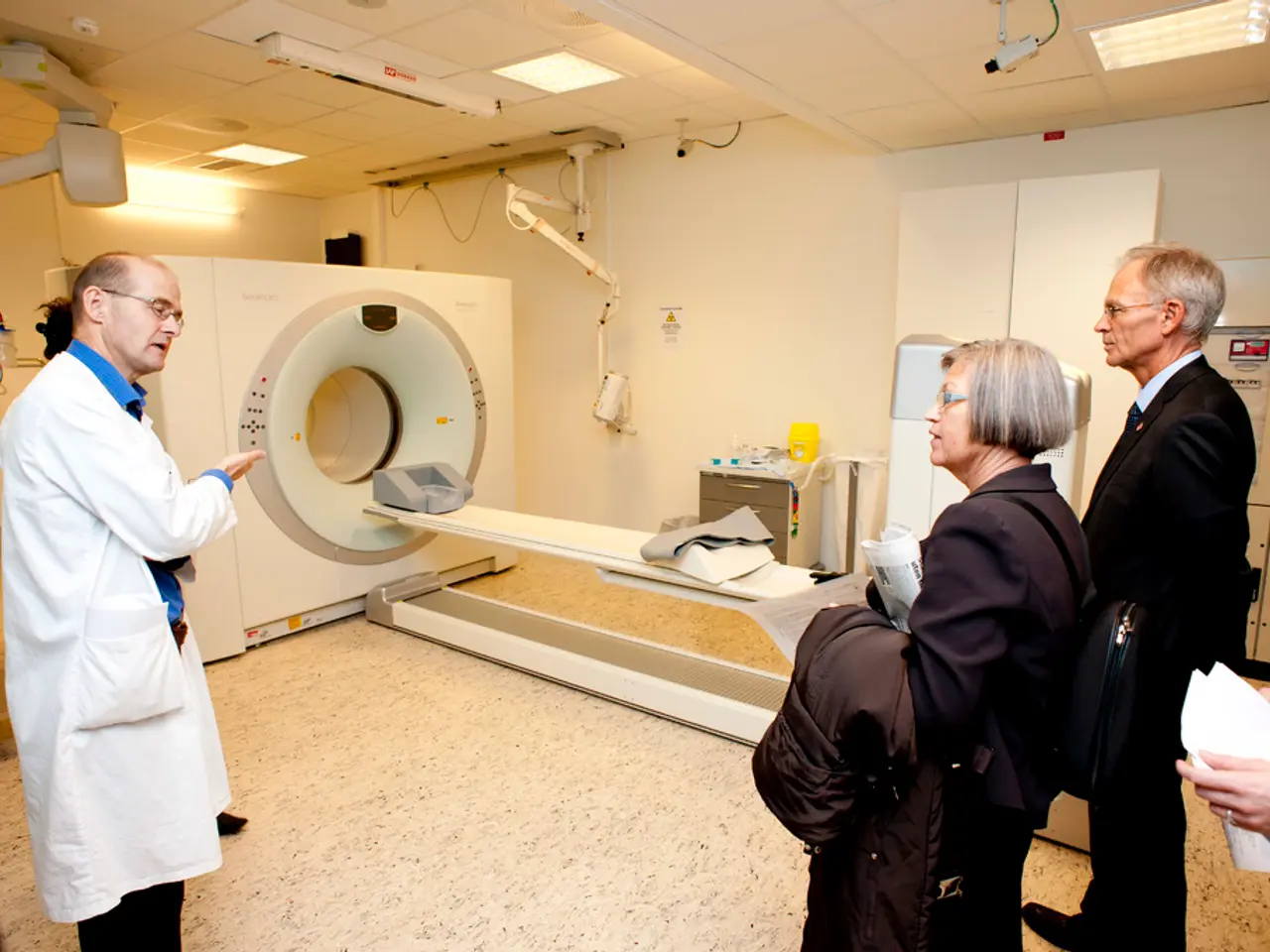Healthcare's Advantage and Perils from Artificial Intelligence and Cybersecurity
Artificial Intelligence (AI) is rapidly transforming various sectors, including healthcare. However, its adoption comes with a dual-edged impact on cybersecurity, presenting both opportunities and challenges.
Recent warnings from the National Institute of Standards and Technology highlight the risks of malicious actors manipulating AI systems to make them malfunction. This concern is not limited to the healthcare sector, as earlier this year, YouTube had to issue a warning about phishing emails featuring AI-generated clips of its CEO.
In the healthcare industry, concerns about AI-related cybersecurity risks include patient data privacy and security, potential exposure of sensitive health information, vulnerabilities to adversarial attacks like data poisoning, and the increasing sophistication of cyber threats. AI systems processing health data can inadvertently reveal identifiable patient information if not properly secured, raising compliance challenges with regulations like HIPAA and GDPR. The sector also faces heightened ransomware and social engineering attacks facilitated by AI capabilities.
Despite these concerns, AI offers significant benefits to healthcare cybersecurity. AI-driven tools enhance threat detection and response capabilities, allowing for proactive defense against breaches. They reduce human error in administrative processes, protect patient records, and ensure compliance through continuous monitoring and strong encryption methods. Secure AI integration frameworks like Samsung Knox offer government-grade protection for mobile devices and applications in healthcare, supporting the safe deployment of AI-powered clinical and operational solutions.
Organizations can collaborate with partners to develop their AI and security strategies, fostering a multidisciplinary approach. Automated processes and managed services have been beneficial for organizations with budgetary constraints in maintaining around-the-clock security monitoring.
Stephanie Hagopian, vice president of physical and cybersecurity services at CDW, stated that organizations are thinking about security around AI from three perspectives: security with AI, security for AI, and security from AI. Security platforms like SentinelOne, Sophos, and Zscaler include AI-powered features.
The use of generative AI services by employees can pose data privacy and security risks for organizations. In a 2024 ISC2 survey, 82% of cybersecurity professionals agreed that AI will improve their job efficiency. However, the survey did not indicate any specific concerns related to AI-assisted social engineering attacks in the healthcare sector.
As AI becomes a widespread presence across industries, it is expected to tackle time-consuming, lower-value functions such as user behavior pattern analysis, network traffic monitoring, and threat detection. AI is expected to play a crucial role in enhancing healthcare cybersecurity, making care more efficient, affordable, and patient-centered while maintaining stringent data protection standards.
However, staffing shortages continue to be a problem for healthcare organizations, including for cybersecurity teams. Strong AI and data governance will better position healthcare organizations as emerging technologies and processes become more widespread. New York University has guidance for its campus community to be wary of AI-assisted social engineering attacks.
In conclusion, while AI presents new vulnerabilities and privacy challenges in healthcare cybersecurity, it also offers powerful tools to defend and optimize care delivery. Robust security designs, regulatory oversight, and responsible AI practices are essential to manage these challenges effectively.
Artificial Intelligence (AI) not only presents risks to healthcare cybersecurity, such as patient data privacy breaches and vulnerabilities to adversarial attacks, but also offers solutions like threat detection and response capabilities, reducing human error, and ensuring compliance.
AI-driven tools could assist in handling time-consuming, lower-value functions like user behavior pattern analysis and network traffic monitoring, potentially enhancing healthcare cybersecurity. However, the use of generative AI services by employees can pose data privacy and security risks, underscoring the need for robust security designs and responsible AI practices.




